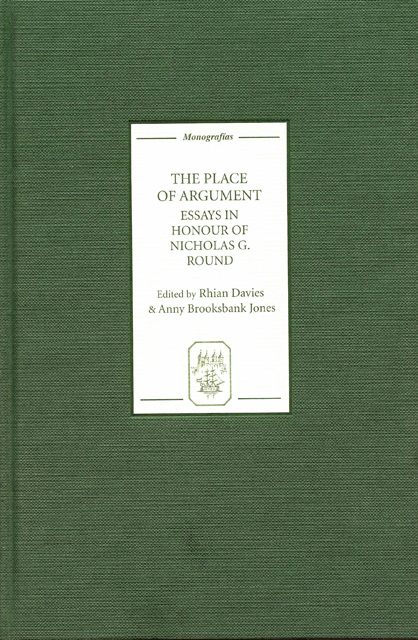From Socartes to Madrid: The Continuity between Marianela and El doctor Centeno
Published online by Cambridge University Press: 10 May 2023
Summary
The traditional division of Galdós’s novels into his early novels (‘de la primera época’) and those of his ‘segunda o tercera manera’ has been the subject of much discussion. While some scholars such as Richard Cardwell seek a sweeping ‘total view’ that is sceptical about the validity of the distinction, the majority of critics believe there is reason to accept some differentiation. At the same time it has been convincingly argued, on the one hand, that La familia de León Roch (1879) is a transitional work, and on the other, that La desheredada (1881), habitually considered as the work initiating the second manner, has some transitional characteristics, being, in Eamonn Rodgers’s words, ‘still constrained within the context of his reformist, Krausist-enlightenment outlook’ (1993: 77).
Across the divide, however, there is an evident link between Marianela (1878) and El doctor Centeno (1883) that has been frequently noted but has attracted little detailed investigation. Yet, as José-Carlos Mainer points out in his cogent discussion in the Introduction to his edition of El doctor Centeno (2002: 9–10), Felipe’s story is explicitly anticipated at the end of the narration in the standard edition of Marianela.
Despidámonos para siempre de esta tumba, de la cual se ha hablado en The Times. Volvamos los ojos hacia otro lado; busquemos a otro ser, rebusquémosle, porque es tan chico que apenas se ve; es un insecto imperceptible, más pequeño sobre la faz de la tierra que el philloxera en la breve extensión de la viña. Al fin le vemos; allí está, pequeño, mezquino, atomístico. Pero tiene alientos y logrará ser grande. Oíd su historia, que no carece de interés.
Pues señor …
Pero no, este libro no le corresponde. Acoged bien el de Marianela, y a su debido tiempo se os dará el de Celipín. (242)
This ending gives rise to a puzzle: why did Galdós not follow up immediately with the sequel he promised in this extremely unequivocal declaration of intent, instead of writing three other novels first? Jacques Beyrie, in particular, draws attention to the problem:
Pourquoi ce long délai de cinq ans, chez un homme qui nous avait habitués à mettre ses projets à exécution avec beaucoup plus de célérité? Question importante, susceptible de projeter une nouvelle lumière sur le problème de la mutation réalisée par le romancier. (1980: II, 325)
- Type
- Chapter
- Information
- The Place of ArgumentEssays in Honour of Nicholas G. Round, pp. 57 - 72Publisher: Boydell & BrewerPrint publication year: 2007

